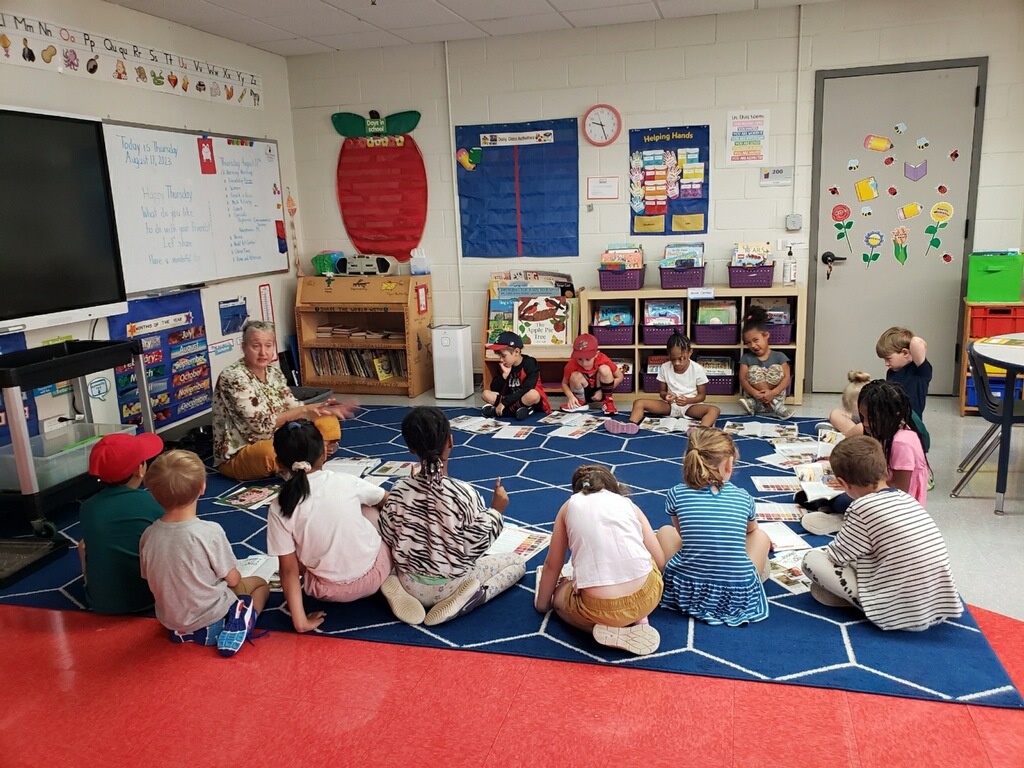
Monarch butterflies hold a special place in our hearts and classrooms, not only for their stunning beauty but also for the invaluable lessons they offer in environmental stewardship and sustainability. These remarkable insects, with their epic migrations and intricate life cycles, serve as nature’s messengers, reminding us of our interconnectedness with the natural world.
Since 2016, The Friends School of Atlanta (FSA) has proudly held the distinction of being a certified Monarch Waystation through its partnership with Monarch Watch. Waystations serve as a safe haven, providing nectaring flowers, water, native milkweeds and shelter for monarchs. Only a handful of other area schools have this designation. And, it wasn’t easy getting these little insects here. In fact, in order to attract and continuous lure these flighty creatures, it takes a lot of planting of milkweed, the butterflies’ main food source.
Each fall, our elementary students have the unique opportunity to witness the awe-inspiring life cycle of several different butterflies. They discover the profound truth that every butterfly’s life commences as a tiny egg, lovingly laid by its mother on a specific plant species. For the iconic monarch butterfly, this life begins in the embracing arms of the milkweed community, as it’s the sole plant species that supports the monarch’s existence. Moreover, our students delve into the broader ecosystem, learning about the myriad other insects and critters that rely on milkweed for a variety of purposes.
This journey of discovery also leads us to reflect on the Quaker principle of environmental stewardship. Quakerism calls us to honor our role as custodians of the Earth and to recognize the interconnectedness of all living beings. Our classroom’s commitment to this stewardship is embodied in our Waystation, where the lessons of the monarch butterflies inspire our students to become compassionate caretakers of our planet.
The monarch butterfly, with its extraordinary long-distance migration to a tiny region in Mexico known as the Oyamel (“o-ee-ya-mel”) forest, serves as a symbol of resilience and interconnectedness. This small part of Mexico, spanning just a mere 73 miles in width, hosts 12 colonies with microclimates perfectly suited for the monarchs to overwinter for five months. Remarkably, the precise location and migratory patterns of monarch butterflies remained a mystery until 1975. It was the dedicated efforts of Canadian biologist Dr. Fred Urquhart, who tirelessly searched for nearly four decades, alongside a network of volunteers and the tagging of thousands of monarchs, that finally unveiled their winter sanctuary. While monarchs are native to North and South America, they have ventured to other corners of the globe where milkweed and suitable temperatures exist, including Australia, New Zealand, and parts of the Iberian Peninsula.
Monarch butterflies have garnered attention not only for their exquisite beauty but also for their arduous southward journey. Yet, not all monarchs embark on this epic migration. There is a population in Florida that remains year-round, and there’s also a western monarch contingent that migrates a shorter distance within the US West Coast and southwestern states.
Every fall for the past 28 years the Symbolic Monarch Migration has occurred via the program through Journey North, an educational resource dedicated to all things migration and seasonal changes. This program aligns with our Quaker values of stewardship and community engagement, offering numerous citizen science opportunities for our students and families. Journey North’s monarch migration resources have become a cornerstone of our Environmental Science curriculum, with this year’s participants being our enthusiastic first-grade students.
As we delve into the world of Monarch Butterflies, we not only embrace the marvels of nature but also fulfill our Quaker commitment to care for the environment and promote interconnectedness among all living beings. Through this exploration, we cultivate a generation of environmentally conscious and compassionate individuals who embody the principles of our Quaker community.
To directly become involved in environmental stewardship efforts here on campus, consider joining us on campus at our next Garden Day event on Saturday, October 14th, 8:00 am – 12:00 pm. You can RSVP by clicking here.
For more information about our environmental science curriculum, please contact Joanna Gerber.
Written by Joanna Gerber and Krystal Collier

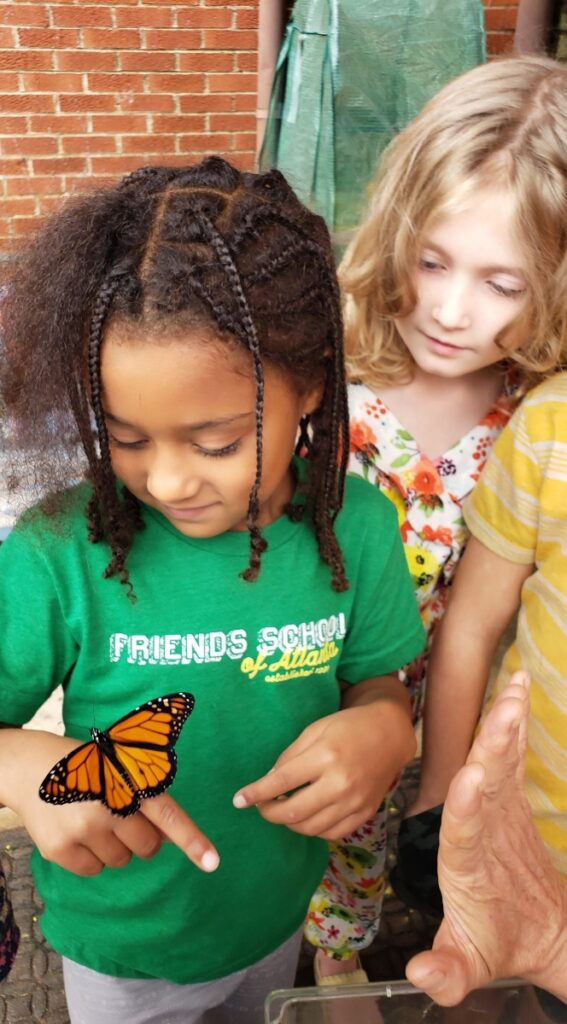
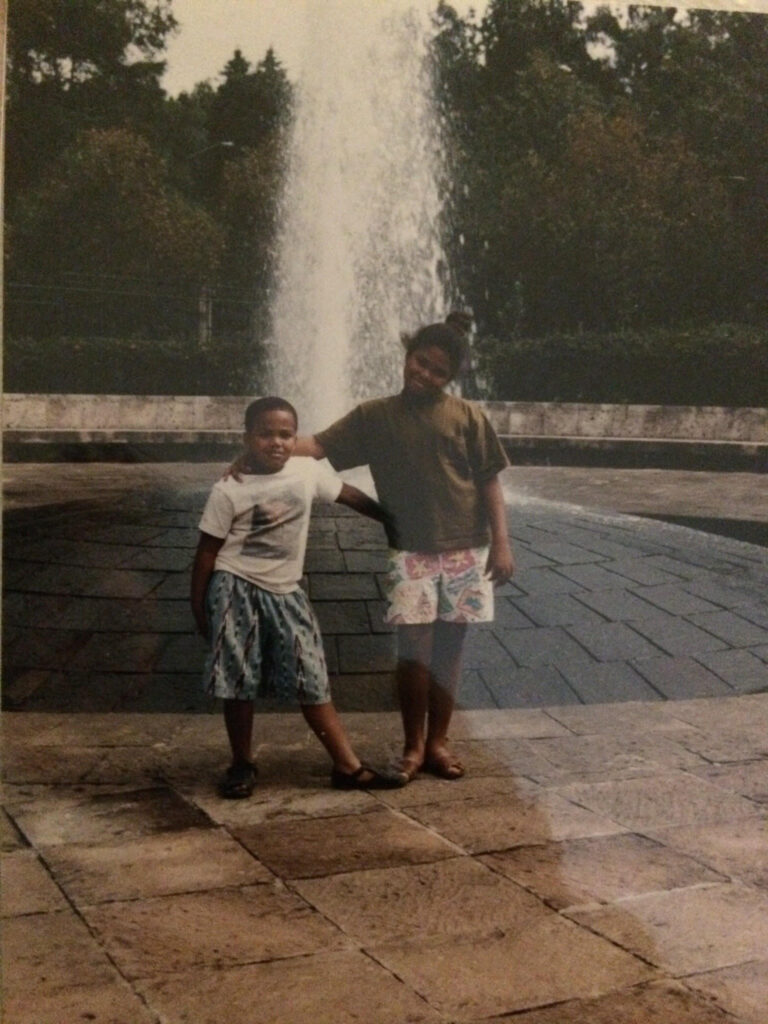
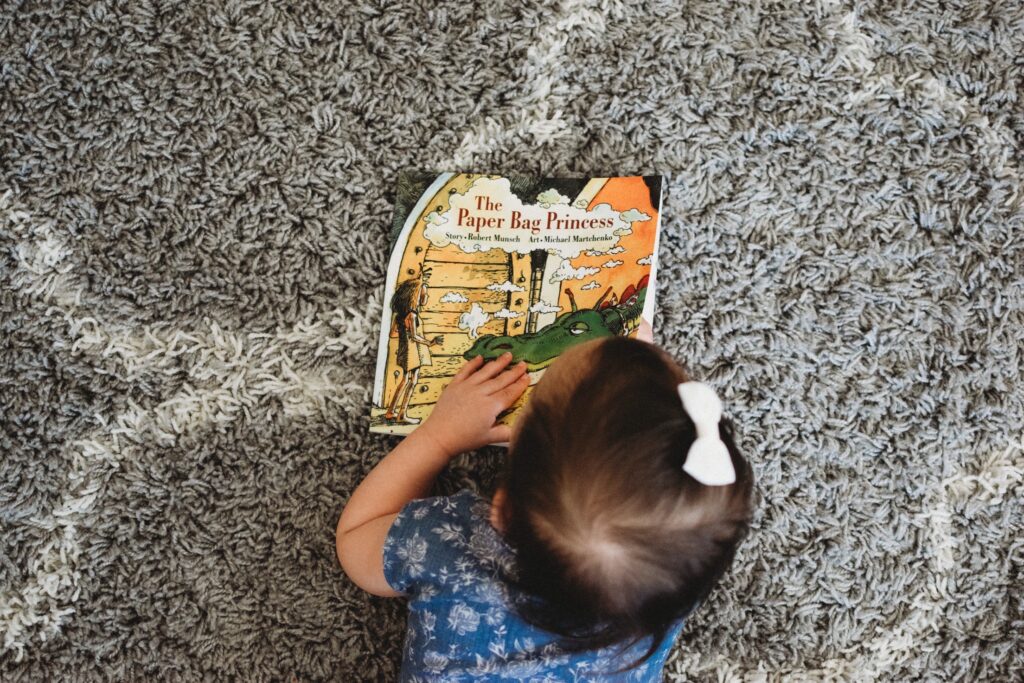
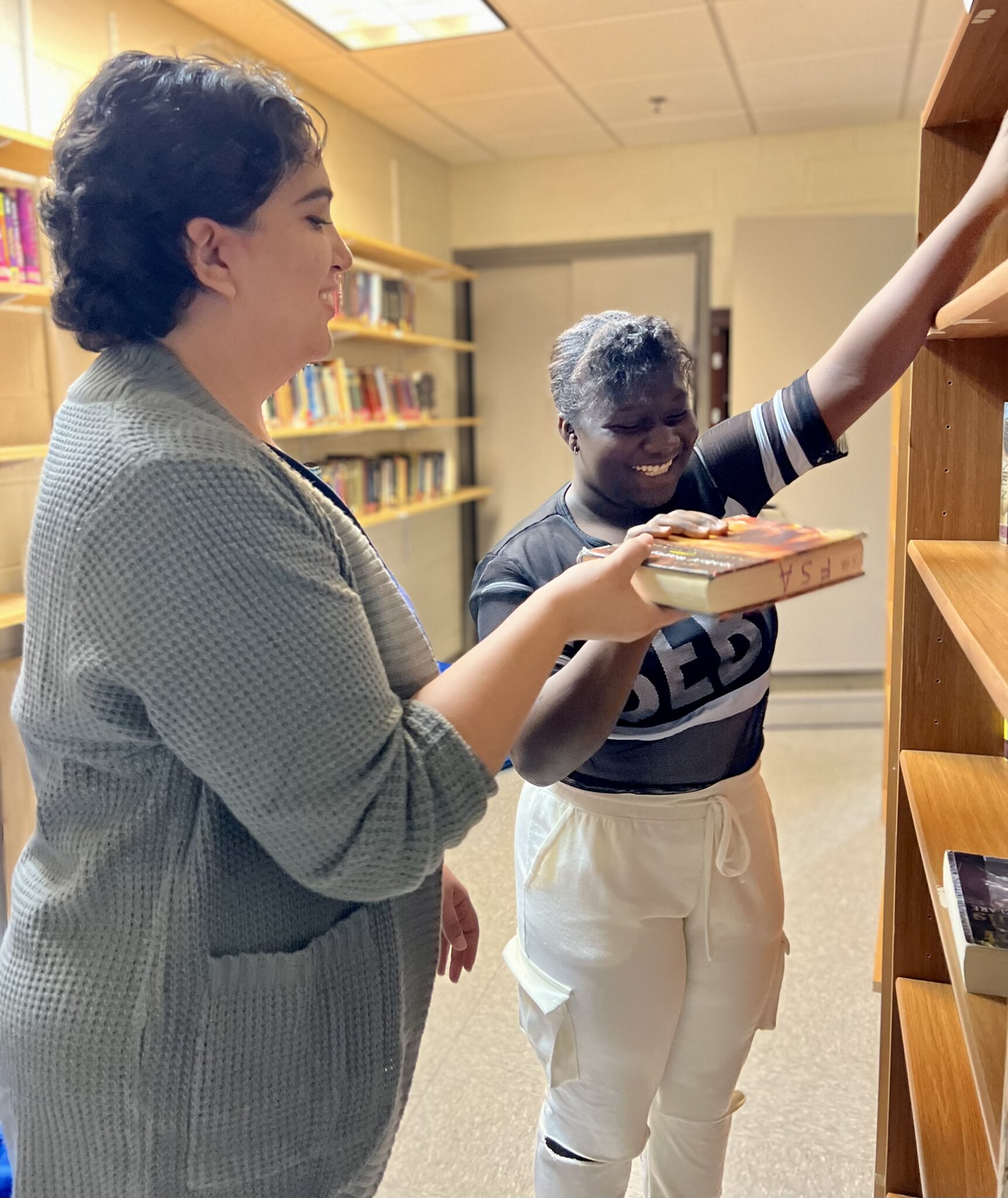 By my second or third year of teaching Language Arts at FSA, I’d become pretty familiar with the books in my classroom. I had spent a lot of time organizing them, taking out volumes that were damaged, and generally making sure that the books were available to students not just as classroom books but as usable library books. I’d gotten pretty good at pointing students towards books that they might want to read, helping them to find stories that reflected their interests, or showing them new possible interests.
By my second or third year of teaching Language Arts at FSA, I’d become pretty familiar with the books in my classroom. I had spent a lot of time organizing them, taking out volumes that were damaged, and generally making sure that the books were available to students not just as classroom books but as usable library books. I’d gotten pretty good at pointing students towards books that they might want to read, helping them to find stories that reflected their interests, or showing them new possible interests.